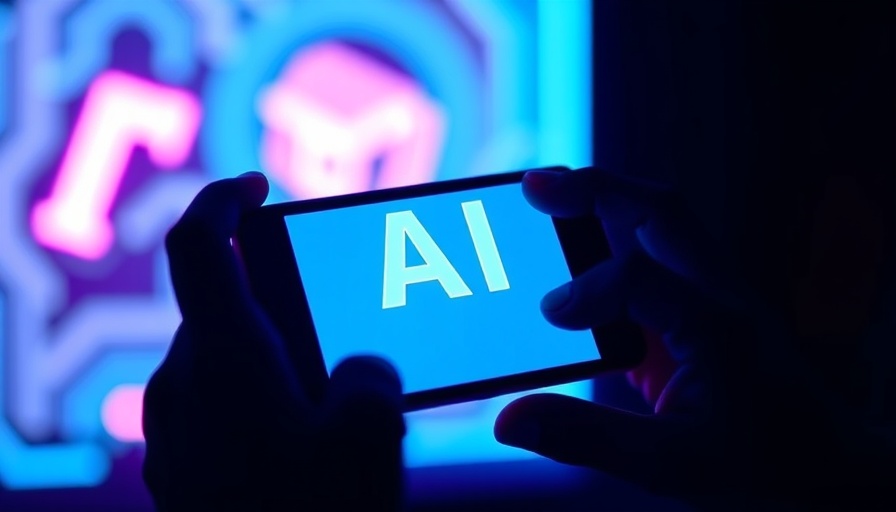
Unveiling Anthropic's Claude 3.7: A Game Changer in AI
On March 3, 2025, Anthropic AI introduced its latest large language model, Claude 3.7 Sonnet, touted as the world’s first hybrid reasoning model. This unique development combines conventional AI capabilities with a new method of reasoning that promises to revolutionize how artificial intelligence helps tackle complex problems.
What Makes Claude 3.7 Stand Out?
Claude 3.7 is unlike traditional AI models, which typically focus solely on generating responses based on prior data. Instead, it takes a hybrid approach, enabling users to interact with the AI in two distinct ways: generating immediate outputs or engaging it in deeper reasoning processes. This method allows users to trade off between the speed of responses and the quality of answers, echoing concepts from behavioral economics detailed in Daniel Kahneman's Thinking, Fast and Slow.
Exploring Hybrid Reasoning in Depth
The hybrid reasoning model represents a significant leap forward in AI's ability to handle more intricate tasks that require analytical thinking. As explained by Dianne Penn, one of Anthropic’s product leads, Claude 3.7 has been specifically designed to improve performance across various real-world applications—not just traditional coding or mathematical tasks. Its ability to 'self-reflect' before formulating responses aims to enhance accuracy particularly in fields like law, coding, and technical writing.
A Comparison with Competitors
In the competitive landscape of AI development, Claude 3.7 positions itself as a viable alternative to OpenAI's models such as o1 and o3. While OpenAI models have made strides in reasoning, they require users to toggle between different computations, making Claude’s seamless integration of conventional and reasoning models an attractive option. This design allows Claude to execute tasks faster while providing options for deeper inquiry as needed.
Emerging Real-World Applications of Claude 3.7
The launch includes a novel tool, Claude Code, designed to assist developers with coding challenges autonomously. With the hybrid reasoning capabilities at its core, Claude Code enables engineers to delegate substantial programming work directly from their environments, significantly boosting productivity. This aspect highlights how Claude is not just a theoretical advancement but practical technology that aims to find its place in everyday business workflows.
Why the AI Community is Excited
As the race for AI innovation heats up, Claude 3.7's capabilities are particularly well-timed with increasing demand from industries for AI solutions that go beyond basic functionality. Anthropic's commitment to creating models that fulfill real-world tasks effectively is likely to resonate with businesses, especially as they transition more operations into digital and AI-enhanced formats.
Future Implications: Where Will This Lead?
The introduction of hybrid models like Claude 3.7 could change the expectations for AI performance across various sectors. As noted by experts, the ability to blend fast output with sophisticated reasoning may set a new standard in AI development, compelling other technology companies to rethink their strategies. As more firms like Google and DeepSeek innovate, we can anticipate that AI as we know it will evolve further, pushing the boundaries of what is possible.
Get Ready for AI's Next Chapter
As we move further into 2025, advancements in AI technology will play an instrumental role in shaping the future of work and innovation. The hybrid model introduced by Anthropic is just the tip of the iceberg, paving the way for future breakthroughs that could redefine our understanding of artificial intelligence capabilities.
 Add Row
Add Row  Add
Add 




 Add Row
Add Row  Add
Add 

Write A Comment